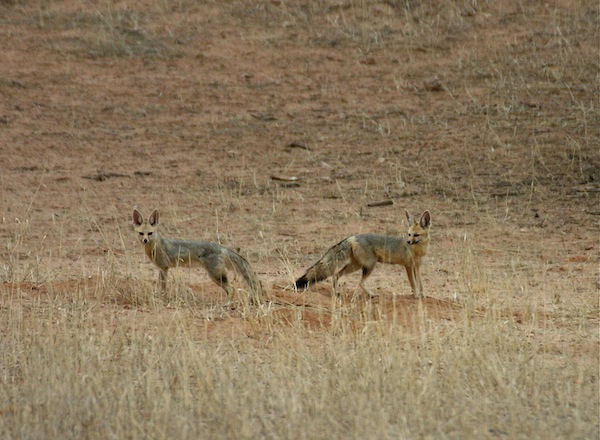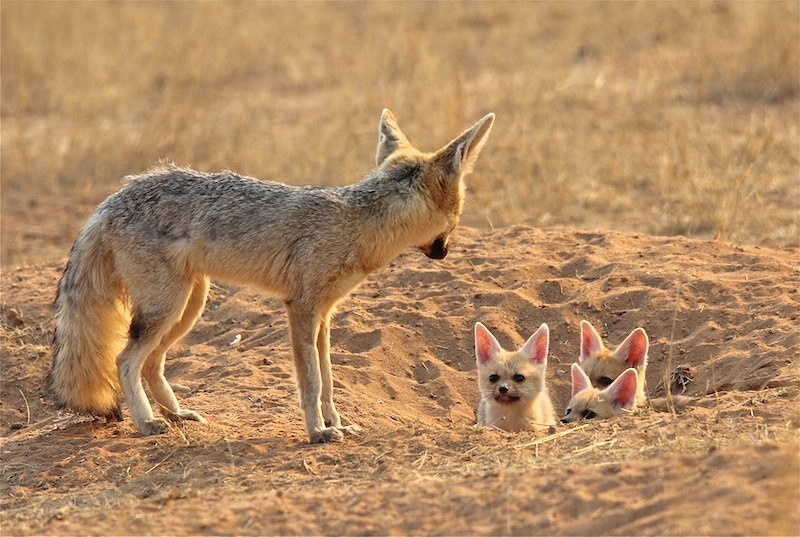The Cape fox is the only true fox occurring in southern Africa. They are generally common to fairly abundant across much of their range.

(All pics taken in KTP)
Current distribution
The species is widespread in the central and western regions of Southern Africa, reaching to about 15°N in south-western Angola. It occupies mainly arid and semi-arid areas, but in parts, such as the fynbos biome of South Africa’s Western Cape province, the species enters areas receiving higher precipitation and denser vegetation. The species has expanded its range over recent decades to the south-west where it reaches the Atlantic and Indian Ocean coastlines. Expansion through South Africa’s Eastern Cape province has been documented. Status in Swaziland is uncertain, but they may occur in the south- west, as the species occurs in adjacent regions of north-western KwaZulu-Natal; possible occurrence in Lesotho. Previous records of its occurrence in western Zimbabwe and Mozambique have not been substantiated, and it is considered unlikely that these records are valid.






